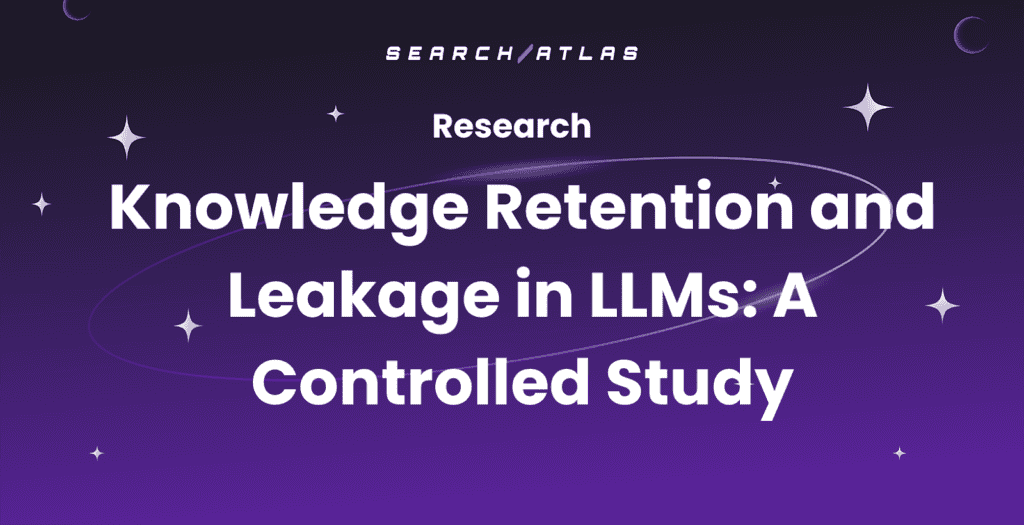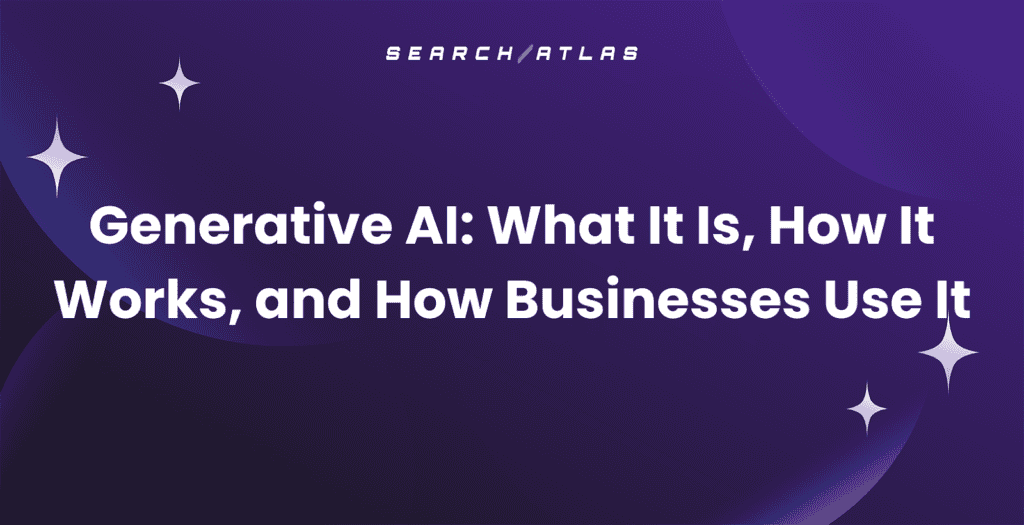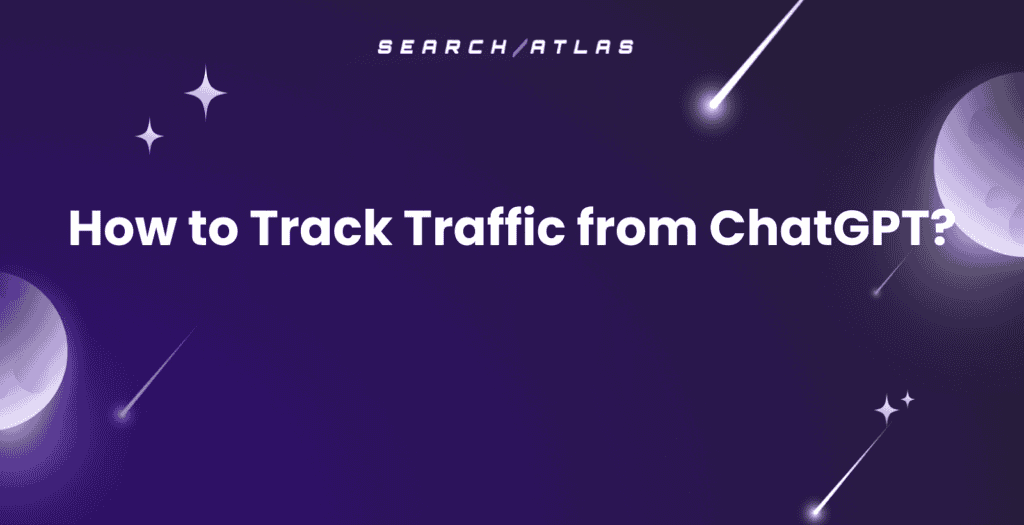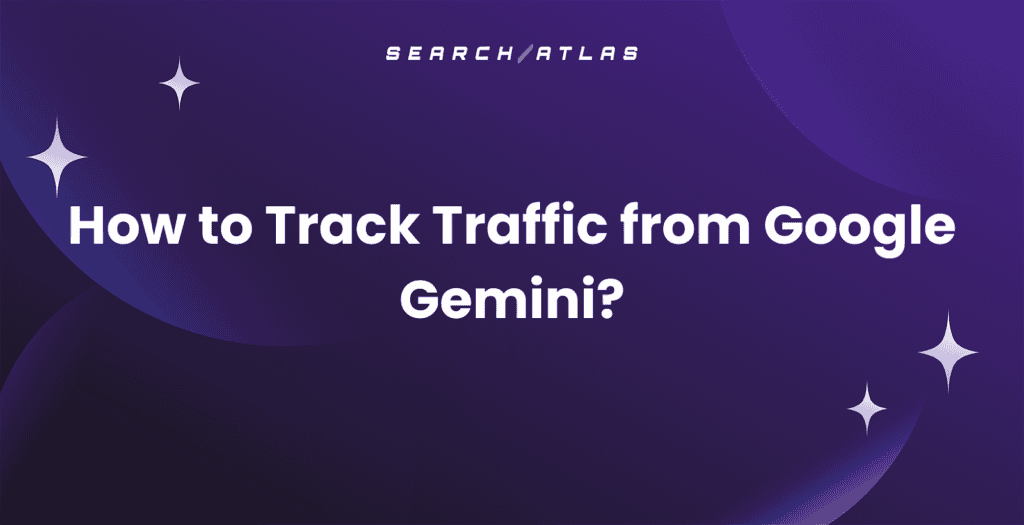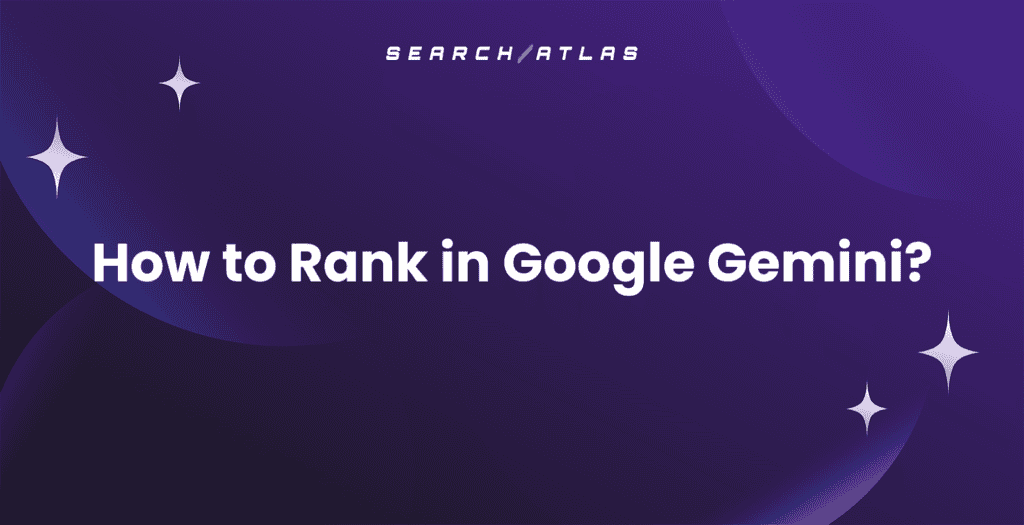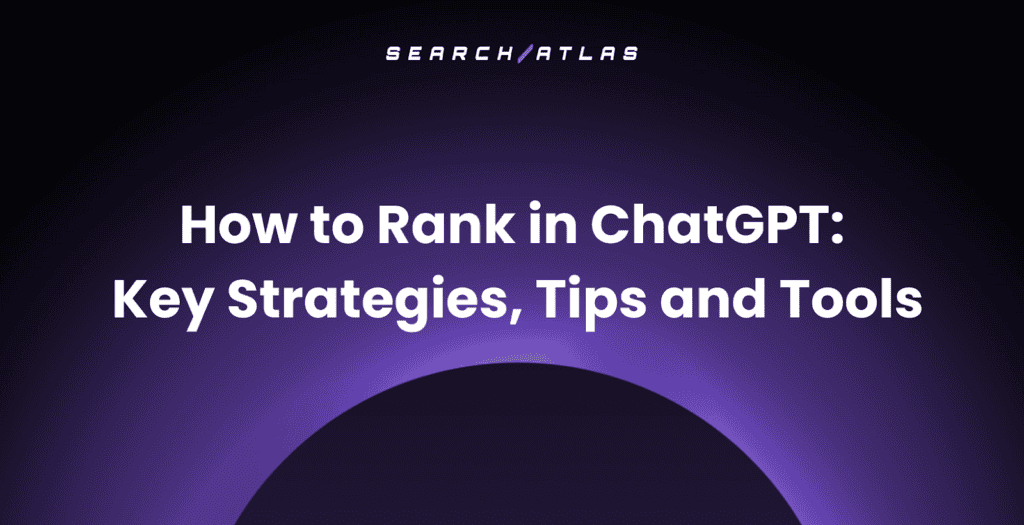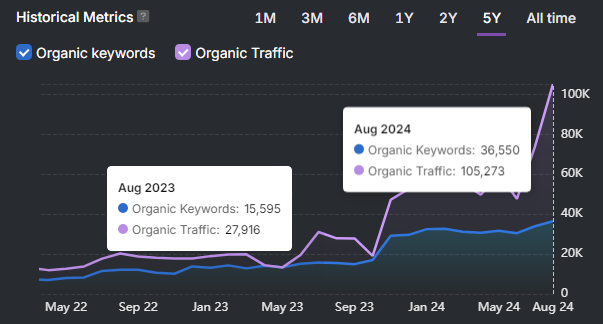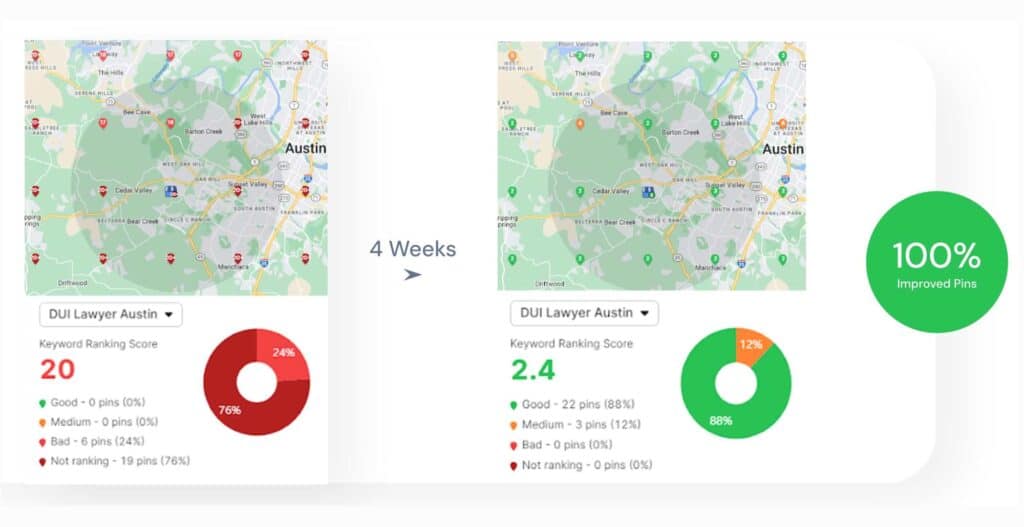Competing for top positions in search results starts with choosing the right approach. Local SEO vs Traditional SEO highlights two distinct paths for reaching your audience online.
Local SEO targets location-based searches and nearby customers. Traditional SEO drives broader, non-location-specific traffic. Both strategies support different business models, marketing goals, and growth stages.
This comparison explains how each method works, highlights their key differences, and helps you choose the best fit for your SEO plans. 🏆
What Is Local SEO?
Local SEO is a branch of search engine optimization that increases visibility for businesses targeting specific geographic areas. It focuses on connecting businesses with people searching for nearby services, products, or solutions. The goal is to improve rankings in map packs, location-specific queries, and local business directories.
What Are the Popular Local SEO Strategies?
Local SEO uses targeted strategies that increase relevance, authority, and proximity for location-based searches. These local strategies include.
- Google Business Profile. Optimize business details like name, address, phone number, hours, and categories for better search visibility.
- Local Citations. List accurate business information across directories like Yelp, Bing Places, and industry-specific listing sites.
- Customer Reviews. Collect, manage, and respond to customer feedback across platforms like Google and Facebook to build trust signals.
- Geo Grid. Monitor location-based rankings using a grid-based visibility map that tracks search performance across different local points.
- Local Keyword Research. Find location-specific search terms that customers use when looking for nearby services or local solutions.

What Are the Types of Business That Use Local SEO?
Local SEO benefits businesses that serve customers in specific geographic areas through in-person services or physical locations, like the ones listed below. There are several businesses that
- Restaurants and cafes: Attract local customers searching for nearby food options. Appear in “near me” searches and map results. Example: pizza restaurants, coffee shops, vegan cafes.
- Retail stores and boutiques: Drive foot traffic from nearby shoppers searching for specific products or stores. Example: clothing boutiques, toy stores, shoe outlets.
- Medical clinics and dental offices: Help patients find care providers within their area. Rank for health-related searches tied to location. Example: pediatric clinics, dental offices, urgent care centers.
- Home service providers like plumbers and electricians: Reach homeowners who need immediate or local assistance. Appear in service-related searches. Example: HVAC technicians, roof repair companies, pest control services.
- Real estate agencies and property managers: Connect with buyers, sellers, and renters in specific neighborhoods. Rank for listings and area-specific keywords. Example: apartment leasing offices, real estate brokers, vacation rental managers.
- Fitness centers and gyms: Target residents searching for convenient workout options nearby. Example: personal training studios, CrossFit boxes, yoga centers.
- Automotive repair shops and dealerships: Attract vehicle owners searching for service or inventory in the area. Example: tire shops, oil change centers, car dealerships.
- Law firms and legal consultants: Gain visibility among clients seeking legal help locally. Appear in searches for attorneys tied to specific legal needs. Example: personal injury firms, family lawyers, immigration attorneys.
- Educational institutions and tutoring centers: Reach families looking for nearby education services. Help rank for searches tied to subjects or levels. Example: language schools, test prep centers, music academies.
- Beauty salons and spas: Draw clients looking for grooming or relaxation services in the area. Example: hair salons, nail bars, massage clinics.
- Event venues and party services: Show up in searches for event locations or services in specific cities. Example: wedding venues, party rental providers, catering companies.
- Veterinary clinics and pet services: Help pet owners find care and support nearby. Example: animal hospitals, dog grooming salons, pet boarding services.
What Is Traditional SEO?
Traditional SEO is a digital marketing practice that improves website visibility for broad, non-location-specific search queries. This strategy helps businesses attract organic traffic from national or global audiences searching for industry-related topics. The focus stays on ranking for high-volume keywords and driving website visits from a wide geographic range.
What Are the Popular Traditional SEO Strategies?
Traditional SEO uses scalable tactics that increase search relevance, increase domain authority, and enhance user experience for wider audience reach.
- Keyword Optimization. Identify target phrases and integrate them naturally into page titles, headers, URLs, and content sections to match search intent.
- Link Building. Earn backlinks from external websites to signal content authority, increase referral traffic, and strengthen search engine trust.
- Content Creation. Produce valuable, topic-focused content like blogs, articles, and guides that answer user queries and support keyword targeting.
- Technical SEO. Improve site infrastructure by fixing crawl errors, optimizing page speed, and enhancing mobile usability for better indexation.
- On-Page SEO. Adjust internal elements like meta tags, headings, and internal links to improve keyword alignment and user engagement signals.
- Off-Page SEO. Build external authority using link outreach, PR campaigns, and social signals that reinforce brand relevance across the web.
What Are the Types of Business That Use Traditional SEO?
Traditional SEO fits businesses targeting large-scale audiences across regions, industries, or multiple buyer segments. There are several businesses that use traditional SEO. The businesses that use traditional SEO are listed below.
- E-commerce stores selling products nationally or internationally: Target customers across broad regions by ranking for product keywords, brand names, and category pages. Example: fashion retailers, electronics stores, home decor websites.
- Online media outlets, news platforms, and publishing websites: Rank for trending topics, evergreen content, and long-tail keywords to drive consistent traffic. Example: tech blogs, news aggregators, lifestyle magazines.
- SaaS companies and digital service providers with global reach: Attract users searching for software solutions across industries and locations. Focus on feature pages, case studies, and product comparisons. Example: project management tools, CRM platforms, marketing automation services.
- Educational institutions offering online courses or certifications: Rank for course names, skill-specific keywords, and industry terms to reach global learners. Example: coding bootcamps, business certification programs, language learning platforms.
- B2B enterprises running lead generation campaigns across sectors: Target decision-makers by ranking for service keywords, pain points, and solution guides. Example: logistics providers, procurement software vendors, compliance consultants.
- Tech companies promoting software, apps, or enterprise solutions: Optimize for product features, integration keywords, and industry use cases. Example: cybersecurity platforms, mobile app developers, cloud infrastructure firms.
- Enterprises running multi-regional digital marketing strategies: Create location-specific content while targeting global keywords to rank across international markets. Example: hotel chains, global e-commerce marketplaces, multinational brands.
Local SEO vs. Traditional SEO: Side-by-Side Analysis
Both traditional and local SEO improve rankings in search results to help more people find, contact, and buy from a business. Here’s the difference.
1. Target Audience
Local SEO reaches users who want nearby solutions. These individuals often search with urgency, looking for businesses they will visit, contact, or hire quickly. Location plays a central role in their decision-making process, and search relevance depends on proximity to the user.
Traditional SEO serves users researching products, services, or information without focusing on physical location. These users evaluate providers based on quality, expertise, or product specifications rather than distance. Their search intent spans multiple regions, with less concern for immediate geographic relevance.
2. Content Strategy
Local SEO content strategy focuses on producing content that targets location-specific keywords and user intent. Businesses include neighborhood references, city names, and geographic terms within headings and body text. Content updates reflect seasonal keywords, local promotions, or customer reviews to strengthen local relevance in search results.
Traditional SEO content strategy focuses on creating topic-driven content that appeals to a wide, location-independent audience. Content types often include blog posts, product guides, how-to articles, and resource pages.
3. Keyword Research
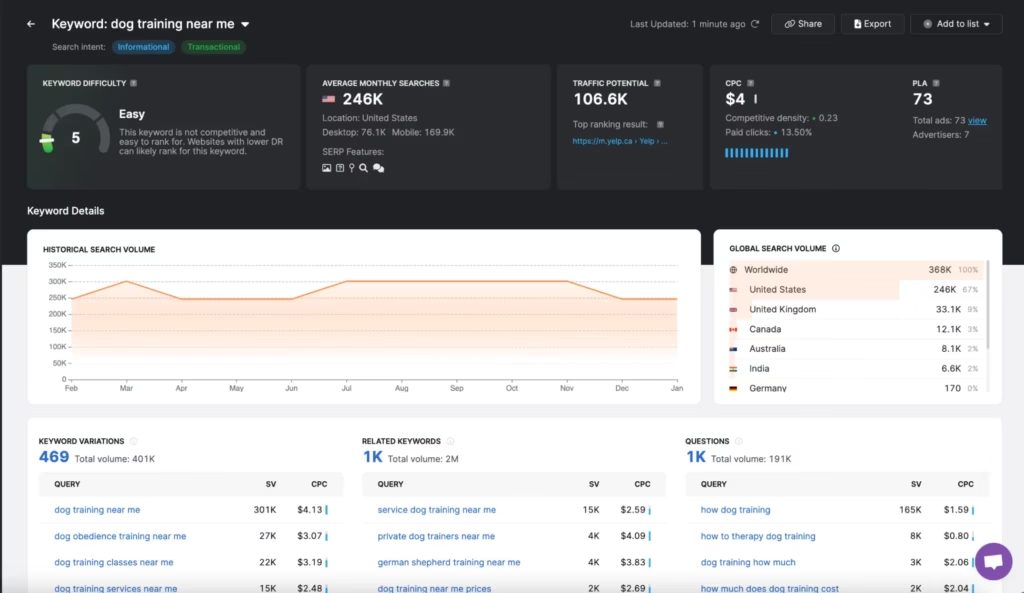
Local SEO keyword research focuses on finding search terms with geographic intent. Businesses identify phrases that include city names, neighborhoods, or nearby landmarks.
Research often highlights queries like “near me” or service plus location combinations. The goal is to match content with how local users describe their needs when looking for nearby products or services.
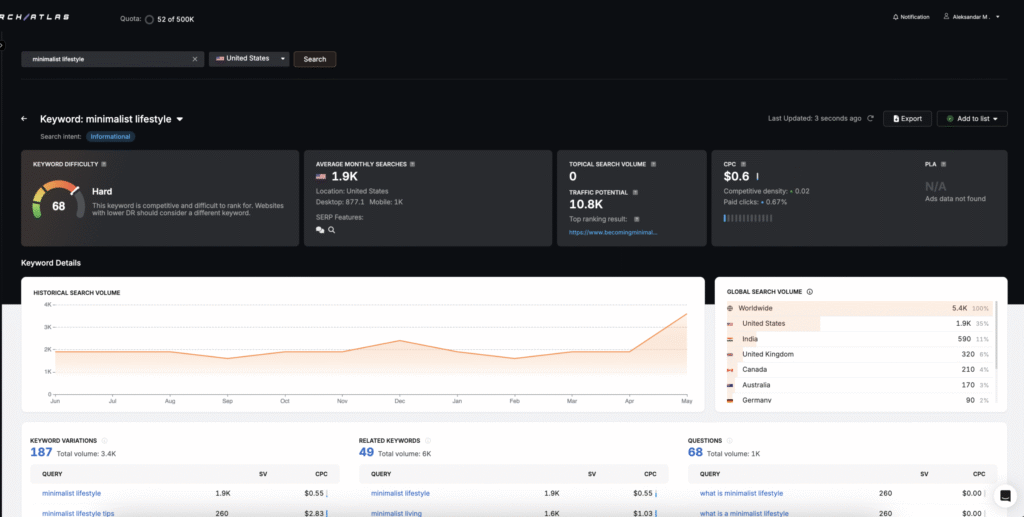
Traditional SEO keyword research focuses on identifying high-volume, non-location-specific search terms related to products, services, or informational topics. Businesses analyze search trends, competition levels, and user intent to select relevant keywords.
Research includes short-tail and long-tail phrases that align with broad audience interests, targeting search visibility across various industries and topics.
4. Rank Tracking
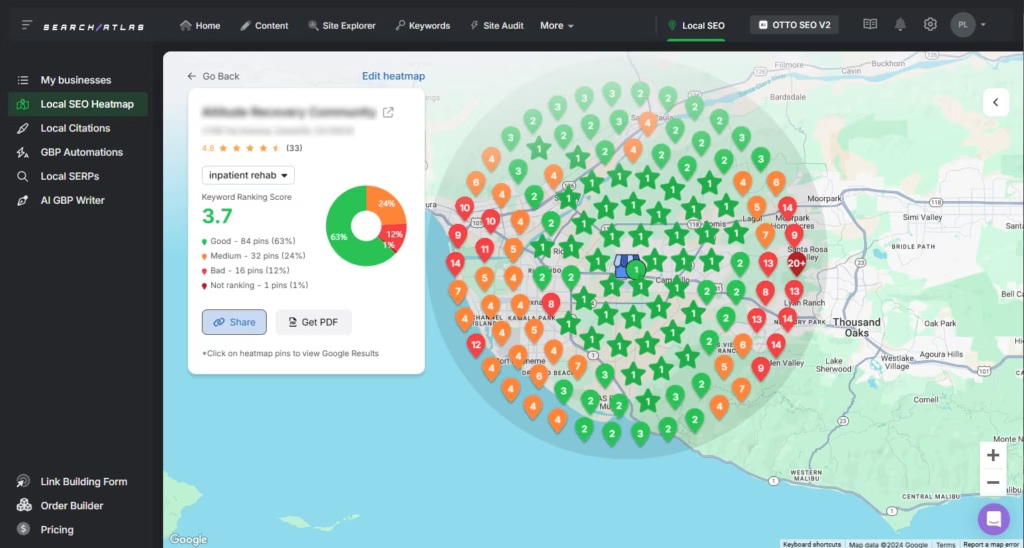
Local SEO rank tracking measures keyword positions within defined geographic areas. Businesses monitor how often their listings appear in local search results for city-specific or location-based queries. Local Search Grid tools generate visual heatmaps that reveal how rankings vary across neighborhoods or zones.
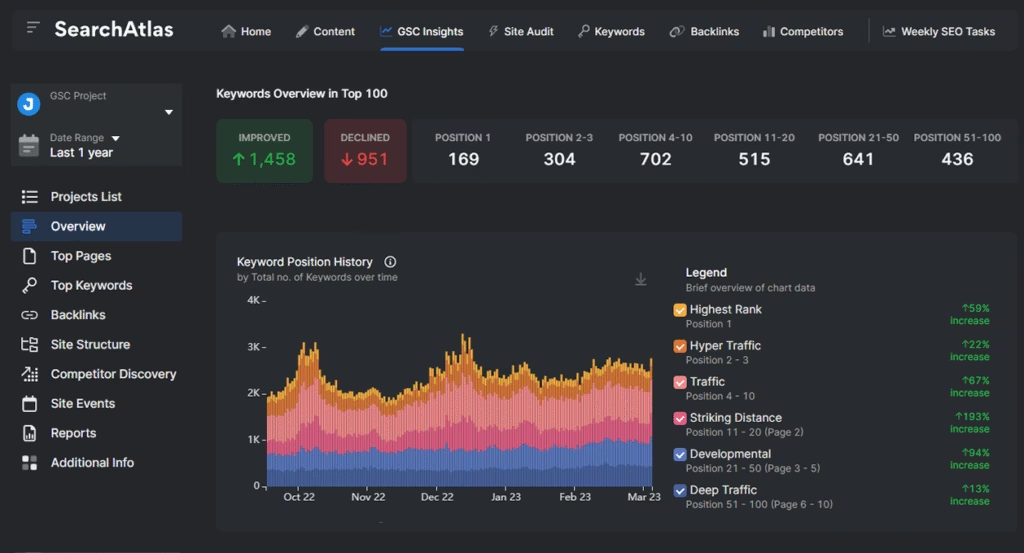
Traditional SEO rank tracking monitors a website’s positions for targeted keywords across broad, non-location-specific search results. Users track changes over time, compare competitor rankings, and analyze historical data to evaluate SEO performance and trends.
5. Landing Pages
Local SEO landing pages are location-focused web pages built to match geographic search intent. They feature business address, phone number, operating hours, service areas, and driving directions. Additional sections often highlight directions, customer reviews, and nearby landmarks to help users find the business easily.
Traditional SEO landing pages are topic-focused pages designed to attract traffic from broad, non-location-based search queries. They include detailed content targeting specific keywords, product categories, or informational subjects. These pages include detailed descriptions, keyword-rich headings, and supporting information that answers common user questions.
6. Link Building
Local SEO link building targets backlinks from websites within the same city or service area. Businesses partner with local organizations, sponsor community events, and participate in neighborhood directories.
Traditional SEO link building focuses on earning backlinks from high-authority websites across various industries and regions. Businesses reach out to bloggers, publishers, and industry sites for guest posts, interviews, or resource mentions.
7. Budget
Local SEO typically involves lower costs because campaigns focus on a specific geographic area with smaller competition pools. Smaller service areas reduce the need for large-scale outreach or high-volume content production, which keeps budgets more accessible for small to mid-sized businesses.
Traditional SEO campaigns require larger budgets due to the complexity of competing for national or global rankings. They demand more time, tools, and specialized expertise, driving up overall costs compared to more localized strategies.
Local SEO vs. Traditional SEO: The Platform That Handle Both Strategies
Managing Local SEO vs. Traditional SEO creates operational complexity that manual processes and single-focus tools often do not handle. Teams need a scalable platform that covers both strategies seamlessly to avoid data gaps and missed opportunities.
Search Atlas solves this gap by empowering SEO efforts from one central place. ✅
Search Atlas Features
Search Atlas combines SEO tools for research, analysis, and automation in one centralized platform. It offers full-site diagnostics, keyword position tracking, backlink profile evaluation, and competitor insights through an interface designed for speed and clarity.
The system integrates data from Google Search Console, Google Analytics, Google Business Profile, Google Ads, Facebook Ads, and keyword ranking tools into one unified dashboard.
OTTO SEO
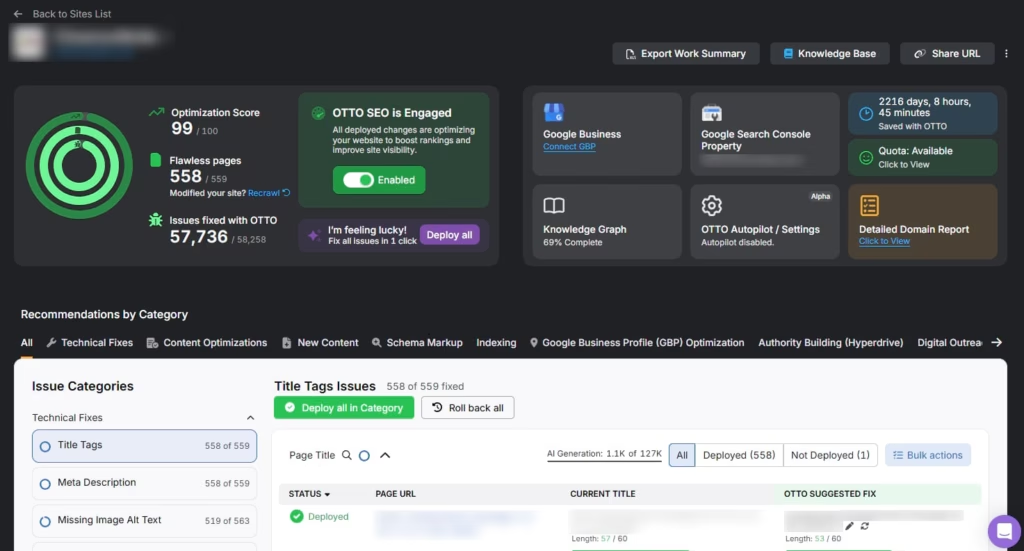
OTTO SEO is the AI assistant of Search Atlas that automates all types of SEO activities. It adjusts on-page and technical SEO, manages internal linking, distributes press releases, and much more. Beyond offering recommendations, OTTO SEO applies changes directly to your website and GBP.
Link Building & Backlink Tools
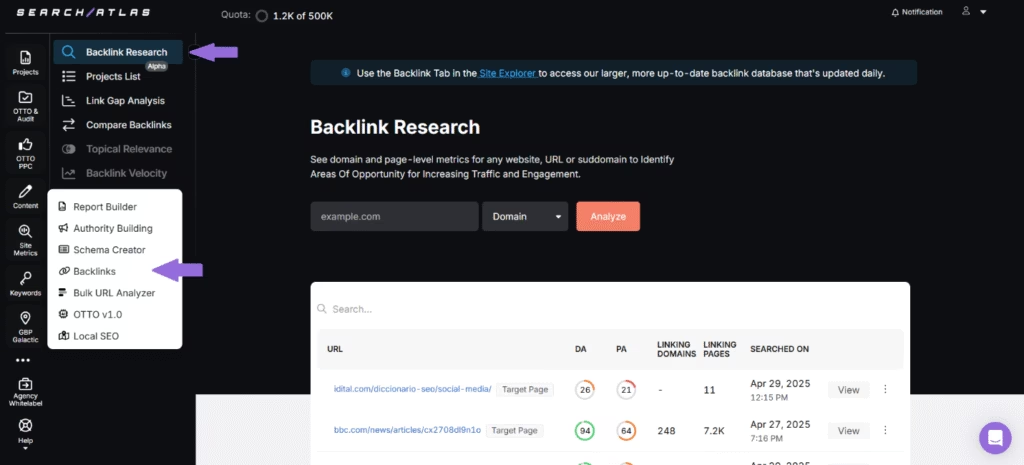
Search Atlas offers a comprehensive set of link building and backlink tools designed to strengthen your SEO efforts.
The Backlink Gap tool helps you find new backlink opportunities by comparing your site’s links with those of your competitors. The Backlink Analyzer evaluates every backlink pointing to your site and benchmarks your overall backlink profile to give you a clear picture of your link health.
One standout feature within OTTO SEO is WILDFIRE, an automated link-building system that secures high-authority backlinks through a simple 2:1 exchange: you provide two outbound links and receive one quality inbound link.
Content Tools
Search Atlas offers a robust suite of content tools to optimize your SEO content strategy. The Content Planner helps you identify keyword clusters and trends for a clear strategy, while the Topical Map Generator visually organizes related topics to build strong topical authority.
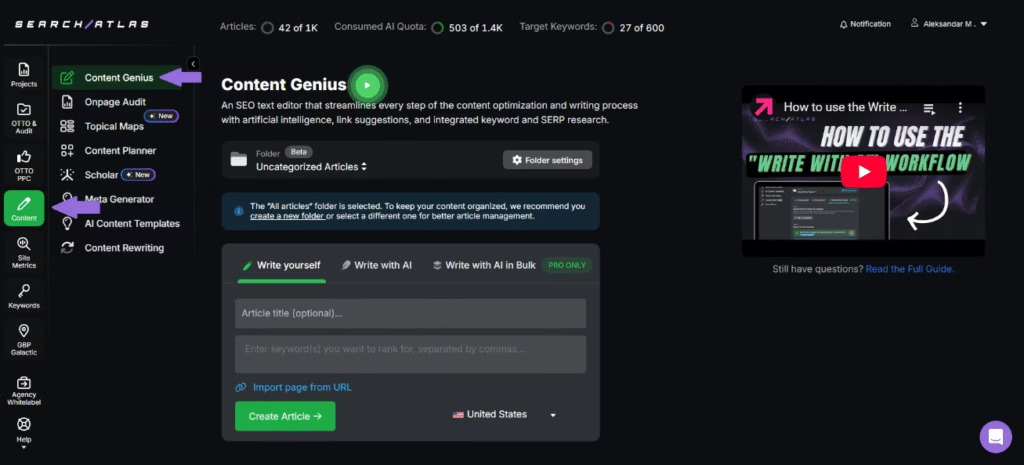
Content Genius, powered by ChatGPT and Claude AI, analyzes top-ranking pages, suggests outlines, and writes SEO-optimized content with recommended NLP terms, word counts, headings, internal links, AI-generated images, and Q&A features.
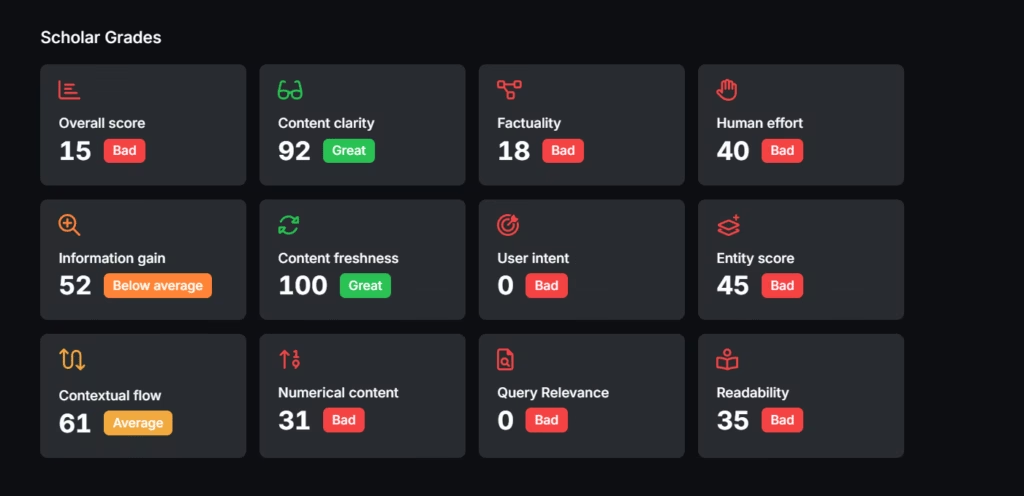
For deeper performance, it offers SCHOLAR, the content quality evaluator, which analyzes your content against Google’s ranking criteria, scoring it on clarity, accuracy, freshness and user intent, highlighting exactly what needs improvement to rank higher.
Keyword Tools
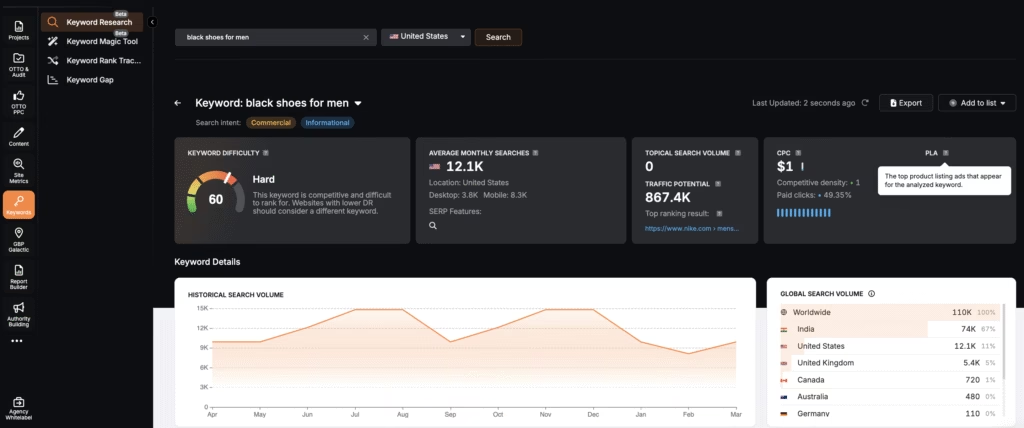
Search Atlas provides comprehensive keyword tools that deliver deep insights into keyword performance and ranking gaps. With access to over 5.2 billion keywords, users gain data on volume, CPC, difficulty, and search intent through the Keyword Research Tool.
The Keyword Magic Tool groups related queries to expand topics and refine targeting, while the Keyword Gap Tool uncovers missed opportunities by comparing your rankings with competitors.
Regional filters enable precise local keyword analysis across cities and service areas, helping you identify high-impact keywords quickly. These tools help you quickly identify relevant keywords and ranking gaps to improve SEO and content planning.
Technical SEO Tools
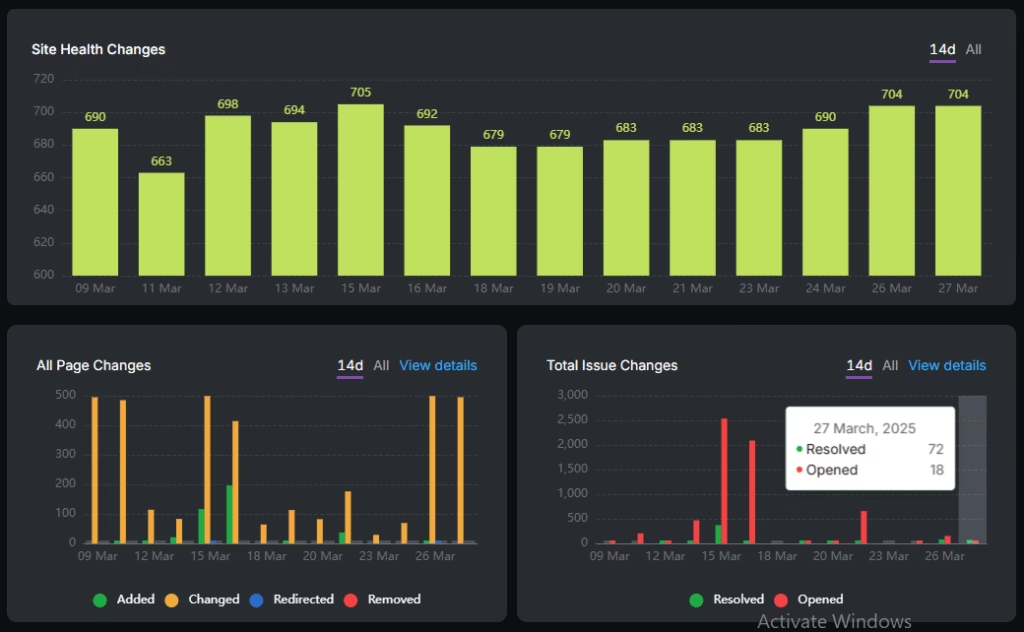
Search Atlas offers technical SEO tools that run full site audits and identify critical issues across performance, structure, and indexing. The Site Auditor monitors your website health, detects issues such as broken links or slow speed, and provides detailed fix guides.
The On-Page Audit compares your pages to top competitors and suggests improvements. Instant issue alerts keep you informed and ready to act to maintain SEO performance.
Rank Tracking Tools
Search Atlas tracks keyword rankings daily using verified GSC data, delivering accurate insights based on real impressions and clicks. The Keyword Rank Tracker includes historical trends and alerts for major ranking shifts.
To measure domain strength, Search Atlas uses Domain Power (DP), a metric based on actual GSC data. Unlike traditional scores based on backlinks or estimates, DP reflects true search visibility and helps you prioritize impactful link-building opportunities.
Local SEO Tools
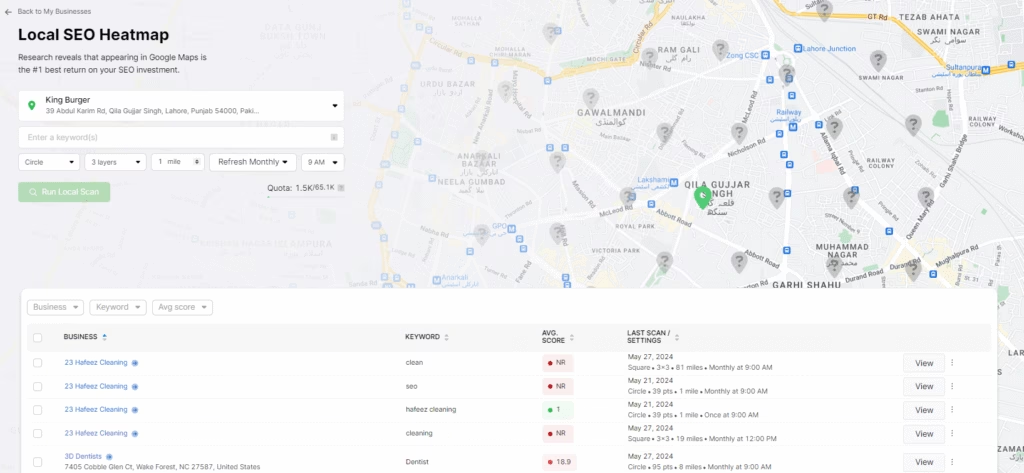
Search Atlas offers a full suite of local SEO tools in one platform, unlike Ahrefs or Semrush, where local features are limited or paid add-ons. It provides city-specific keyword research, local rank tracking with heatmaps, local content creation and citation building.
GBP Galactic centralizes all GBP activities, which enables update posting, listing monitoring, and alerts for missing information. Meanwhile, OTTO SEO handles routine tasks like review replies and Q&A management, saving time and improving local visibility.
Search Atlas Pricing
Search Atlas delivers advanced SEO tools with flexible pricing for growing teams. Each plan includes OTTO SEO activation. Users get a 7-day free trial to explore the full platform with no strings attached.
| Starter plan | Growth plan | Pro plan | |
|---|---|---|---|
| Price: | $99 monthly | $199 monthly | $399 monthly |
| Free OTTO Activation | 1 | 2 | 4 |
| User Seats | 2 | 3 | 5 |
| GSC Projects | 5 | 15 | 100 |
| Keywords per Site | Top 10K | Top 100K | Top 1M |
| Onpage In-Depth Audits | 40 | 100 | 200 |
| Keyword Rank Tracking Projects | 20 | 50 | 1000 |
| Backlink Analyzer Projects | 2 | 5 | 5 |
| Total Pages Crawled per Month | 50K | 100K | 10M |
| Aggregator Network Citations | ✅ | ✅ | ✅ |
| Content Genius – AI Blog and Landing Page Generation | ✅ | ✅ | ✅ |
Search Atlas: Built to Handle SEO at Every Scale
Local and traditional SEO work better together. With the right strategy, your national efforts will boost your local rankings and your local visibility will strengthen your broader SEO performance.
Search Atlas supports both by centralizing everything you need to grow search visibility across locations, keywords, and technical tasks.
From local rankings to national campaigns, see how one platform handles SEO at every scale with precision and automation. Start your free trial today. 🚀✨


